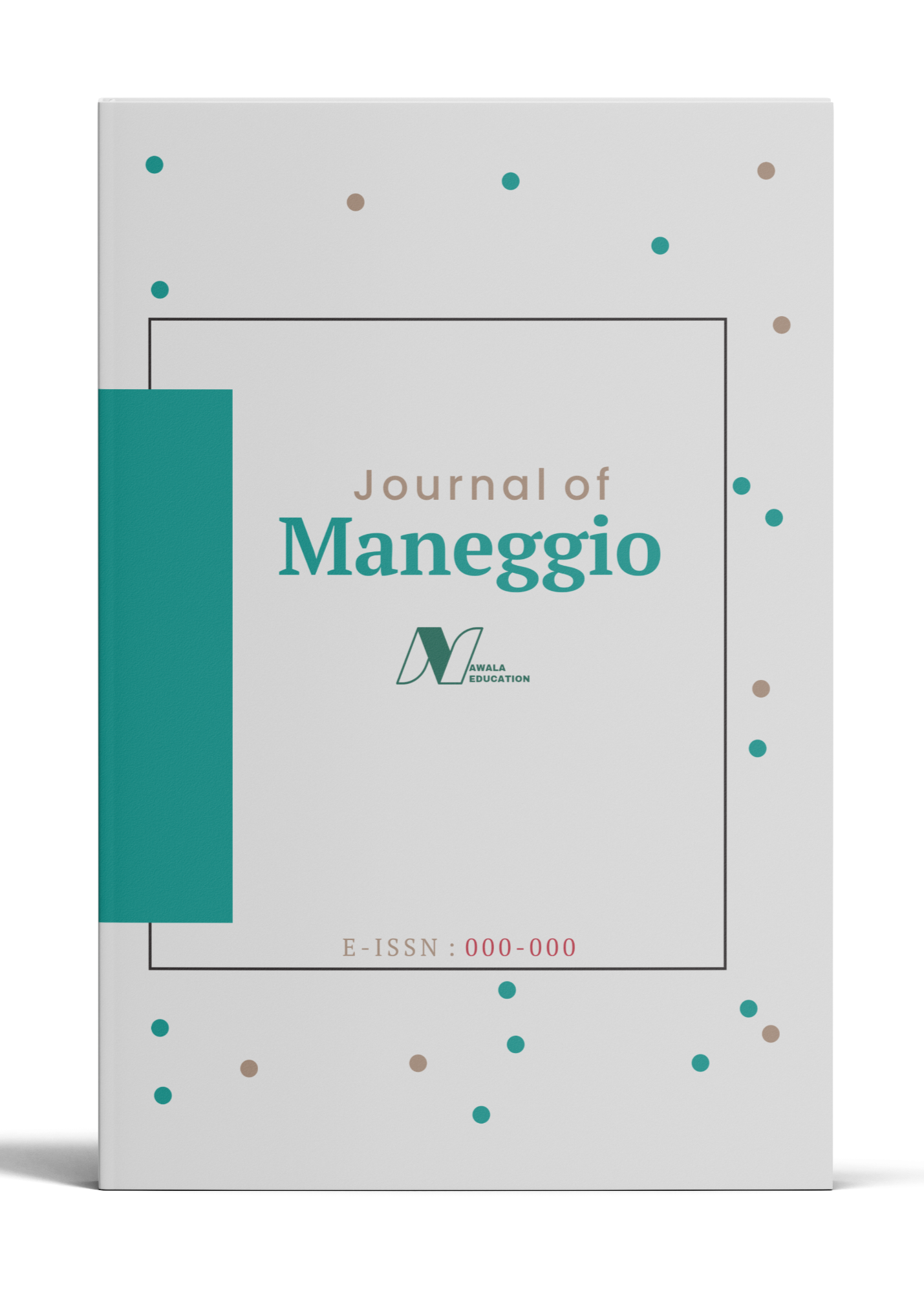The Role of Management Accounting in Long-Term Project and Investment Management
DOI:
https://doi.org/10.62872/3p0f5108Keywords:
Management Accounting, Project Management, InvestmentAbstract
This study aims to explore the role of management accounting in long-term project and investment management. Management accounting plays a very important role in supporting effective decision-making, budget planning, cost control, and performance evaluation in projects and investments that require long-term commitment. Through literature study, this study examines various concepts, theories, and techniques of management accounting applied in project and investment management, including cost analysis, return on investment (ROI) calculation, and cash flow control. The results of the study indicate that management accounting not only functions as a recording and reporting tool, but also as a planning and monitoring tool that is very vital in minimizing risk and optimizing resource use. This study also identifies challenges in the application of management accounting, such as market uncertainty and changes in the economic environment that can affect the results of projects and investments. Overall, the application of good management accounting principles can improve operational efficiency, support more informed decision-making, and ensure the achievement of the company's long-term goals.
Downloads
References
Abdelhalim, A. M. (2023). How management accounting practices integrate with big data analytics and its impact on corporate sustainability. Journal of Financial Reporting and Accounting, 22(2), 416–432. https://doi.org/10.1108/jfra-01-2023-0053
Adner, R., & Levinthal, D. A. (2024). What Is Not a Real Option: Considering Boundaries for the Application of Real Options to Business Strategy. The Academy of Management Review, 29(1), 74. https://doi.org/10.2307/20159010
Chenhall, R. H., & Langfield-Smith, K. (1998). The relationship between strategic priorities, management techniques and management accounting: an empirical investigation using a systems approach. Accounting, Organizations and Society, 23(3), 243–264. https://doi.org/10.1016/s0361-3682(97)00024-x
Culasso, F., Broccardo, L., Manzi, L. M., & Truant, E. (2016). Management accounting and enterprise risk management. A potential integration as a new change in managerial systems. Global Business and Economics Review, 18(3/4), 344. https://doi.org/10.1504/gber.2016.076238
Dahlman, C. (2007). Technology, globalization, and international competitiveness: Challenges for developing countries. Industrial development for the 21st century: Sustainable development perspectives, 29-83. https://doi.org/10.4324/9781003095361-6
Evianti, D., Rachman, R., Imaningati, S., & Yusuf, M. (2024). The Important Role of Management Accounting in Optimizing Cost Control and Improving Profitability in the Service Sector. Nomico, 1(4), 105–116. https://doi.org/10.62872/grwv6k50
Fryling, M. (2010). Estimating the impact of enterprise resource planning project management decisions on post-implementation maintenance costs: a case study using simulation modelling. Enterprise Information Systems, 4(4), 391–421. https://doi.org/10.1080/17517575.2010.519785
Harteis, C., & Billett, S. (2013). Intuitive expertise: Theories and empirical evidence. Educational Research Review, 9, 145–157. https://doi.org/10.1016/j.edurev.2013.02.001
Hasanudin, H. (2024). Optimizing The Implementation Of Enterprise Resource Planning (ERP) In Company Financial Management. Jurnal Ekonomi, Akuntansi dan manajemen Indonesia, 2(02), 104-114. https://doi.org/10.61722/jemba.v1i3.435
Hunton, J. E., Wright, A. M., & Wright, S. (2004). Are Financial Auditors Overconfident in Their Ability to Assess Risks Associated with Enterprise Resource Planning Systems? (Retracted). Journal of Information Systems, 18(2), 7–28. https://doi.org/10.2308/jis.2004.18.2.7
Kalicanin, D., & Knezevic, V. (2023). Activity-based costing as an information basis for an efficient strategic management process. Ekonomski Anali, 58(197), 95–119. https://doi.org/10.2298/eka1397095k
Kouhia-Kuusisto, K. (2022). Management Accounting in Small Enterprises: Identifying and Overcoming the Challenges of Using Management Accounting Information Among Entrepreneurs. https://doi.org/10.1108/jaoc-07-2022-0100
Larsen, J. K., Shen, G. Q., Lindhard, S. M., & Brunoe, T. D. (2016). Factors Affecting Schedule Delay, Cost Overrun, and Quality Level in Public Construction Projects. Journal of Management in Engineering, 32(1). https://doi.org/10.1061/(asce)me.1943-5479.0000391
Kouhia-Kuusisto, K. (2022). Management Accounting in Small Enterprises: Identifying and Overcoming the Challenges of Using Management Accounting Information Among Entrepreneurs. https://doi.org/10.47467/elmal.v5i11.4298
Overby, E., Bharadwaj, A., & Sambamurthy, V. (2006). Enterprise agility and the enabling role of information technology. European Journal of Information Systems, 15(2), 120–131. https://doi.org/10.1057/palgrave.ejis.3000600
Pasch, T. (2019). Strategy and innovation: the mediating role of management accountants and management accounting systems’ use. Journal of Management Control, 30(2), 213-246. https://doi.org/10.1007/s00187-019-00283-y
Pietrosemoli, L., & Rodríguez Monroy, C. (2013). The impact of sustainable construction and knowledge management on sustainability goals. A review of the Venezuelan renewable energy sector. Renewable and Sustainable Energy Reviews, 27, 683–691. https://doi.org/10.1016/j.rser.2013.07.056
Ponto, S., Aqsa, M., & Sejati, F. R. (2024). A Qualitative Study on Performance, Investment Decisions, and Strategic Approaches. Amkop Management Accounting Review (AMAR), 4(1), 59–75. https://doi.org/10.37531/amar.v4i1.1537
SADEH, A., & DVIR, D. (2019). THE EFFECT OF TECHNOLOGICAL RISK, MARKET UNCERTAINTY AND THE LEVEL OF COMPLEXITY ON NEW TECHNOLOGY VENTURES’ SUCCESS. International Journal of Innovation Management, 24(05), 2050047. https://doi.org/10.1142/s1363919620500474
Söderlund, J., & Maylor, H. (2012). Project management scholarship: Relevance, impact and five integrative challenges for business and management schools. International journal of project management, 30(6), 686-696. https://doi.org/10.52160/ejmm.v2i6.162
Taipaleenmäki, J., & Ikäheimo, S. (2013). On the convergence of management accounting and financial accounting – the role of information technology in accounting change. International Journal of Accounting Information Systems, 14(4), 321–348. https://doi.org/10.1016/j.accinf.2013.09.003
Downloads
Published
Issue
Section
License
Copyright (c) 2024 Arifiansyah Saputra, Siti Mialasmaya, Rahmad Rahmad (Author)

This work is licensed under a Creative Commons Attribution-ShareAlike 4.0 International License.












